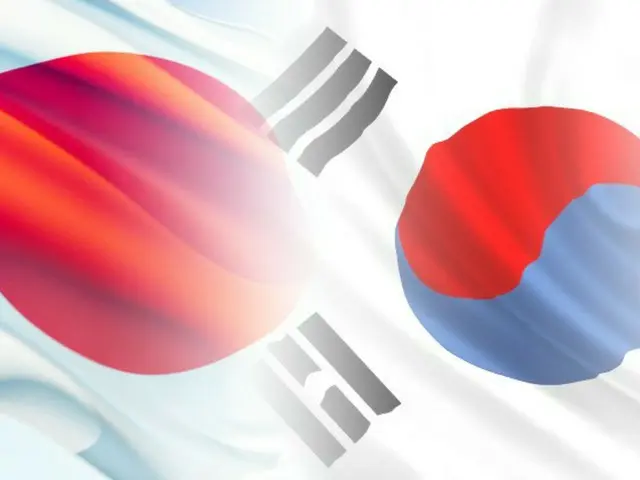He was ordered to pay 200 million won (approximately 23 million yen) in compensation. The Seoul High Court ruled against the principle of ``sovereign immunity'' under international law, which states that a sovereign state cannot be judged by the courts of other countries.
Ta. The Japanese government has not responded to any judicial proceedings, arguing that it violates the principle of sovereign immunity, and the second instance judgment is expected to become final without filing an appeal. The Japanese government believes that the issue of claims for comfort women and other women was established in 1965.
The company has taken the position that the issue has been resolved through the Japan-Korea Claims Agreement, and expressed its regret at the ruling, calling it "absolutely unacceptable." Is it possible that this ruling will have a negative impact on Japan-Korea relations, which continue to improve?
Although there are concerns about whether this is possible, many Japanese media outlets are reporting the view that the impact will be limited. In December 2016, former comfort woman Lee Yong-soo and the families of former comfort women said,
They filed a lawsuit against the Japanese government, demanding 200 million won in damages for each person, claiming that they were "forced to suffer mental and physical pain." The first instance judgment of the Seoul Central District Court in April 2021 stated that ``international customs
In accordance with customary law and precedents of the South Korean Supreme Court (Supreme Court), the plaintiff's lawsuit was dismissed, stating that a claim for damages for a foreign sovereign act cannot be recognized. A “final and irreversible solution” to the comfort women issue
It also certified the validity of the 2015 agreement between Japan and South Korea, which confirmed the agreement. The plaintiffs appealed, and on the 23rd of this month, the second instance, the Seoul High Court, canceled the first instance judgment and ordered the Japanese government to pay compensation. Sovereign countries are the courts of other countries.
The focus was on whether the principle of ``sovereign immunity'' under international law, which prevents judgment by courts, is recognized, but the high court held that ``based on customary international law, Tafu
Regarding legal acts, there are cases in which sovereign immunity of the perpetrator state is not recognized." ``Under international customary law, it is appropriate to recognize the jurisdiction of Korean courts over the Japanese government, which is the defendant,'' and collect comfort women.
The court determined that appropriate compensation should be paid because the defendant's misconduct was recognized during the process. One of the plaintiffs, Lee Yong-soo, spoke to reporters after the verdict and said, ``The Japanese government is
They should sincerely apologize and pay legal compensation in accordance with the judgment." The Hankyoreh, a South Korean newspaper, said in an editorial on the 24th, ``Countries that committed anti-humanity crimes such as 'military comfort women' during wartime should be held responsible.
It is a judgment of great historical and legal significance, as it clarifies the principle that there is no escape from the law.'' Yonhap News said, ``We respect the 2015 comfort women agreement as an official agreement between the two countries.
A Ministry of Foreign Affairs (equivalent to the Ministry of Foreign Affairs) official said, ``This seems to be a sign that the government is willing to deal with this issue within the framework of a diplomatic agreement.''
On the other hand, the Japanese government, which had not participated in the trial because it believed that the issue of compensation had been resolved in the 1965 Japan-Korea Claims Agreement, said, ``We absolutely cannot accept the ruling.''
"I can't get in," he said. Chief Cabinet Secretary Hirokazu Matsuno said at a press conference on the 24th, ``This is clearly contrary to international law and the agreement between Japan and South Korea, and is extremely regrettable and absolutely unacceptable.
We will strongly urge them to take appropriate measures." Additionally, Vice-Minister of Foreign Affairs Masataka Okano summoned South Korean Ambassador to Japan Yoon Dong-min to protest. Furthermore, Foreign Minister Yoko Kamikawa visited on the 26th.
He recently met with South Korean Foreign Minister Park Jin in Busan, southern South Korea. He protested the ruling, calling it "extremely regrettable" and calling for corrective measures.
According to reports in the Tokyo Shimbun and other media, this ruling was something that even the plaintiff's attorney had not anticipated.
cormorant. The newspaper pointed out that the latest ruling did not apply ``sovereign immunity,'' making a judgment that is seen as ``unorthodox'' even in the Korean legal community.'' ``A trial involving historical issues between Japan and South Korea is shaking the relationship between the two countries.''
This happened one after another during the previous Moon Jae-in administration, but it has become clear that conflicts cannot be easily resolved even under the conservative Yoon Seong-ryeol administration."
As mentioned above, the Japanese government has not responded to this lawsuit due to the principle of ``sovereign immunity,'' and the verdict is expected to be final. The Mainichi Shimbun said, ``This is a difficult task for the Yun Seok-Yeong administration, which emphasizes relations with Japan.
"This will result in an increase of one," he said. On the other hand, the newspaper also reported, ``The impact on Japan-Korea relations appears to be limited at this point, as there will be no immediate actual harm to the Japanese government.''
If the judgment becomes final, the plaintiffs are expected to aim to seize Japanese government assets in South Korea, but it is believed that it will be difficult to seize assets in practice. another former
In a similar lawsuit in which comfort women and others won, the Japanese side refused to receive a document ordering disclosure of an inventory of their assets. In March 2021, the Seoul Central District Court ordered former comfort women to seize Japanese government assets in South Korea.
The decision has been made not to allow
2023/11/27 13:07 KST
Copyrights(C)wowkorea.jp 5

